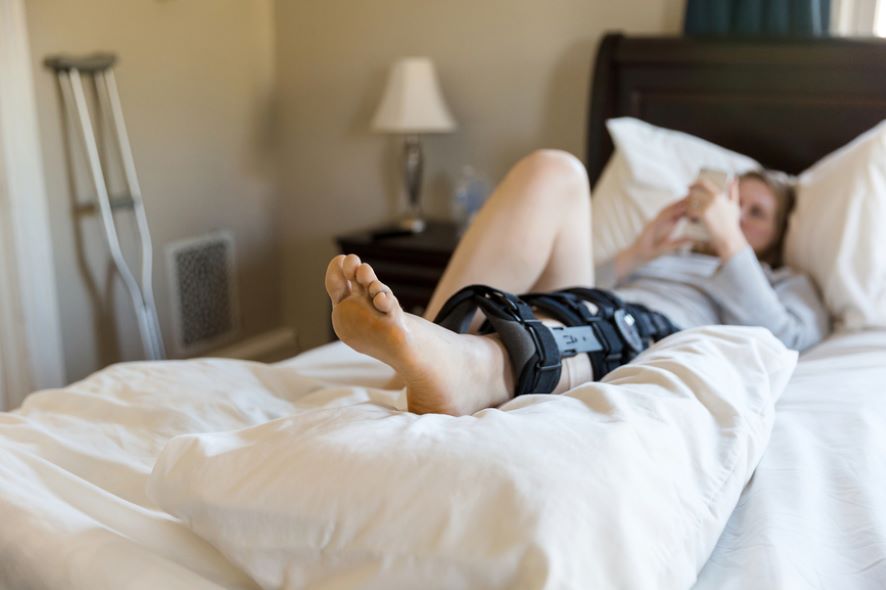Facing the Facts: What I Wish I Knew Before Knee Replacement Surgery
Knee replacement surgery, a life-changing procedure for individuals suffering from chronic knee pain, offers the promise of restored mobility and improved quality of life. However, the road to recovery can be more challenging than anticipated. This comprehensive guide explores the realities of knee replacement surgery, drawing on the wisdom of those who have walked the path before you. By understanding the “wish I knew beforehand” aspects of knee replacement surgery, you can approach the experience with realistic expectations and a positive mindset.
Beyond the Surgical Suite: The Unforeseen Realities
While the focus might be on the surgery itself, there are several aspects of knee replacement surgery that patients often wish they had been better prepared for:
- Pain Management: While pain medication is provided, post-surgical pain can be significant, and managing it effectively is crucial for a smooth recovery. Understanding the different pain management options and potential side effects can help you set realistic expectations.
- Physical Therapy Commitment: Regaining mobility and strength after surgery requires dedicated physical therapy. The intensity and duration of therapy can be demanding, and being mentally prepared for this commitment is essential.
- The Emotional Rollercoaster: The recovery process can be emotionally challenging. Facing limitations, experiencing setbacks, and managing pain can lead to frustration and discouragement. Anticipate these emotional hurdles and have support systems in place to navigate them.
- Loss of Independence: For a period following surgery, you might require assistance with daily activities like bathing, dressing, and preparing meals. Planning for this temporary dependence on others can ease the transition and minimize frustration.
- Lifestyle Adjustments: Knee replacement surgery doesn’t guarantee a return to your pre-pain activities without limitations. Understanding the potential need for lifestyle modifications, such as avoiding high-impact activities, is crucial for long-term joint health.
- Focus on Recovery, Not Perfection: Recovery is a gradual process. Setbacks are common, and comparing your progress to others can be discouraging. Focus on celebrating small victories and prioritize steady improvement over perfection.
Words of Wisdom from the Knee Replacement Veterans
Here are some valuable insights gleaned from individuals who have undergone knee replacement surgery:
- “Prepare your home for recovery beforehand.” Install grab bars, remove throw rugs, and rearrange furniture to create a safe and accessible environment.
- “Invest in recovery aids like a shower chair, a long-handled grabber, and an elevated toilet seat.” These simple tools can significantly improve your independence during the initial recovery phase.
- “Focus on building mental strength alongside physical strength.” Having a positive outlook and setting realistic goals can be just as important as physical therapy exercises.
- “Don’t be afraid to ask for help.” Lean on your support system, whether it’s family, friends, or healthcare professionals.
- “Listen to your body and your therapist’s instructions.” Pushing yourself too hard can lead to setbacks. Prioritize proper form and rest over speed in physical therapy.
- “Celebrate your progress, no matter how small.” Regaining your mobility is a journey, and acknowledging even minor improvements can boost your morale.
The Power of Positive Preparation: Equipping Yourself for Success
By understanding the realities of knee replacement surgery and learning from the experiences of others, you can approach the procedure with a sense of empowerment:
- Gather Information: Educate yourself about the surgical procedure, recovery timeline, and potential complications.
- Discuss Expectations with Your Doctor: Talk openly with your doctor about your goals, recovery expectations, and any concerns you might have.
- Strengthen Your Support System: Enlist the help of family and friends who can provide practical and emotional support during recovery.
- Prepare Your Home Environment: Make your home more accessible and comfortable for post-surgical mobility limitations.
- Address Pre-Existing Conditions: Optimize your overall health by managing any pre-existing conditions that could impact surgery or recovery.
- Develop a Positive Mindset: Cultivate a positive attitude and focus on the potential benefits of improved mobility and pain relief.
Frequently Asked Questions (FAQ)
Q: How much pain can I expect after knee replacement surgery?
- A: Post-surgical pain can be significant, but pain management strategies like medication, ice therapy, and physical therapy can help control it effectively.
Q: How long will I be in the hospital after knee replacement surgery?
- A: The hospital stay typically lasts for a few days, but the duration can vary depending on your individual case.
Q: When can I return to work after knee replacement surgery?
- A: The timeframe for returning to work depends on your job demands and recovery progress.

